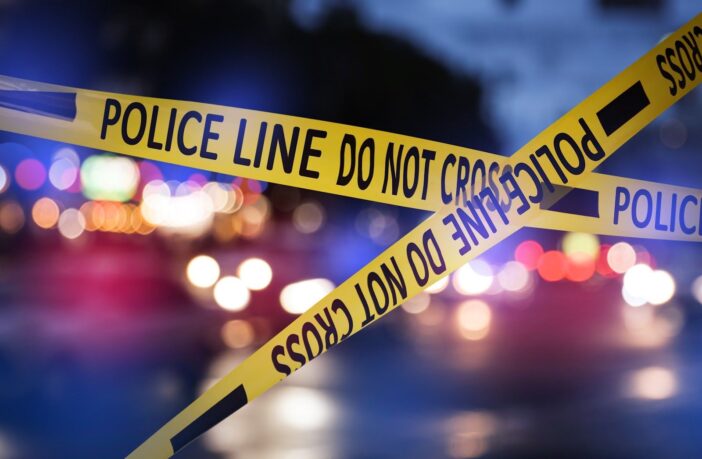Hours after the failed assassination attempt against Donald Trump in Pittsburgh unfolded this weekend, one politician after another condemned the shooting, which left two people dead and several wounded.
Both Republicans and Democrats issued statements similar to what President Joe Biden told the nation Sunday in a rare Oval Office address: violence “has no place” in American politics.
There are a few historical problems with that statement; the family of Martin Luther King Jr., for one, would beg to differ. Not to mention Trump’s fingerprints are all over the deadly Jan. 6 insurrection, arguably the most significant incident of political violence in U.S. history. And Trump has made no secret of the fact that he’s OK with a little not-so-light thuggery now and then, as long as it serves his own end (or amuses his audience).
Yet the condemnations of the violent act against Trump walk past conservative Republicans’ full-on embrace of guns for everyone — a political and cultural obsession that directly affects the everyday violence that happens on the regular in Black America. This past weekend alone, when thoughts and prayers went out to Trump, the drumbeat of gun violence in Black communities went on, unabated.
According to the Gun Violence Archives, 12 people died from gun violence during the weekend, most of them Black. They included a teenage girl who was shot to death in Philadelphia; the close-range shooting of four residents of Holly Springs, Mississippi, a Jackson suburb; a 21-year-old man found fatally shot in the head in Toledo, Ohio; and a 27-year-old man who met a similar fate in West Baltimore.
In other words, except for the attempted assassination on Saturday, it was a typically violent weekend in Black America.
The numbers tell part of the story.
Since 2020, more than three-quarters of homicides in the U.S. have been committed with guns, and Black people are 12 times more likely to die from gun violence than whites. Even more disturbing: homicide was the second leading cause of death among Black children up to age 14 years, and it is the most common cause of death among persons aged 15 to 24.
LEARN MORE: As Black Gun Deaths Rise, Biden Says Congress Must Act
Even though whites are more likely than Black people to commit suicide, the trend lines are reversing. White suicide rates are falling while Black suicide rates are climbing, and, more often than not, the method of choice is a gun.
Just a few weeks ago, Surgeon General Dr. Vivek Murthy declared gun violence a public health emergency, pointing to the fact that firearms have become the leading cause of death for all children in the U.S. Given the statistical disparities, though, what’s a crisis for America as a whole is a catastrophe for Black America specifically.
Yet in a country where there are more guns than people, Trump and his Republican allies — along with a very friendly Supreme Court — have unraveled, pushed back on, or loosened, gun laws, practically to the point of nonexistence.
Consider: The powerful National Rifle Association has endorsed Trump, and he’s addressed the group twice this year, telling them that “no one will lay a finger on your firearms” if he’s back in the White House. Together, with the Republican National Committee, Trump announced “Gun Owners for Trump,” a coalition of firearms-industry lobbyists and gun-rights activists. And the former president regularly says President Joe Biden will “rip firearms out of the hands of law-abiding citizens.” Which, if true, is going really badly.
Trump himself played a hand in further opening the tap for universal gun ownership. When he was president, Trump blocked a requirement for gun sellers to offer child-proofing equipment, froze a rule that would have expanded the ban on people with mental illnesses from buying guns, and purged some 500,000 names from the federal background check system.
And while it’s true that guns are technically illegal in cities like Chicago (which regularly records 600 or more homicides per year, with majority-Black victims), gun smugglers don’t seem to care, since they load up on guns from red states with lax gun laws and sell them in the city. In the Midwest, for example, Chicago’s main supplier is Indiana; on the Eastern seaboard, the underground gun markets in Washington, D.C., Philadelphia, and New York get their inventory from Georgia, Florida, Virginia, or South Carolina.
RELATED: Guns Are Killing Young Black People in Rural America, Too
The gun lobby also got a huge assist from the Supreme Court, which in 2008, basically invalidated Washington’s city ordinances that banned private citizens from owning guns. In a city like D.C., which regularly records 100 or more homicides per year — again, mostly in Black neighborhoods with mostly Black victims and imported black-market guns — the ordinance didn’t seem to be working all that well anyway.
It’s tempting to say that, given his stances on violence in politics and guns for everyone, the assault against Trump (which occurred in Pennsylvania, a state where the Republican legislature made it legal to openly carry a gun without a permit) is a matter of the semi-automatic chickens coming home to roost. But in this moment of “national unity,” that criticism, apparently, must be left for another time.
It’s fair game, though, to put a spotlight on the throughline: Republicans’ vision of a gun in every pot, so to speak. One would hope that Trump’s close call with gun violence — an incident that, but for a few millimeters, could have killed him, plunged the country into disarray, and sent his party into chaos — might convince them to rethink their position.
But I wouldn’t bet my life on it.
This article was originally written by Joseph Williams for Word In Black.



